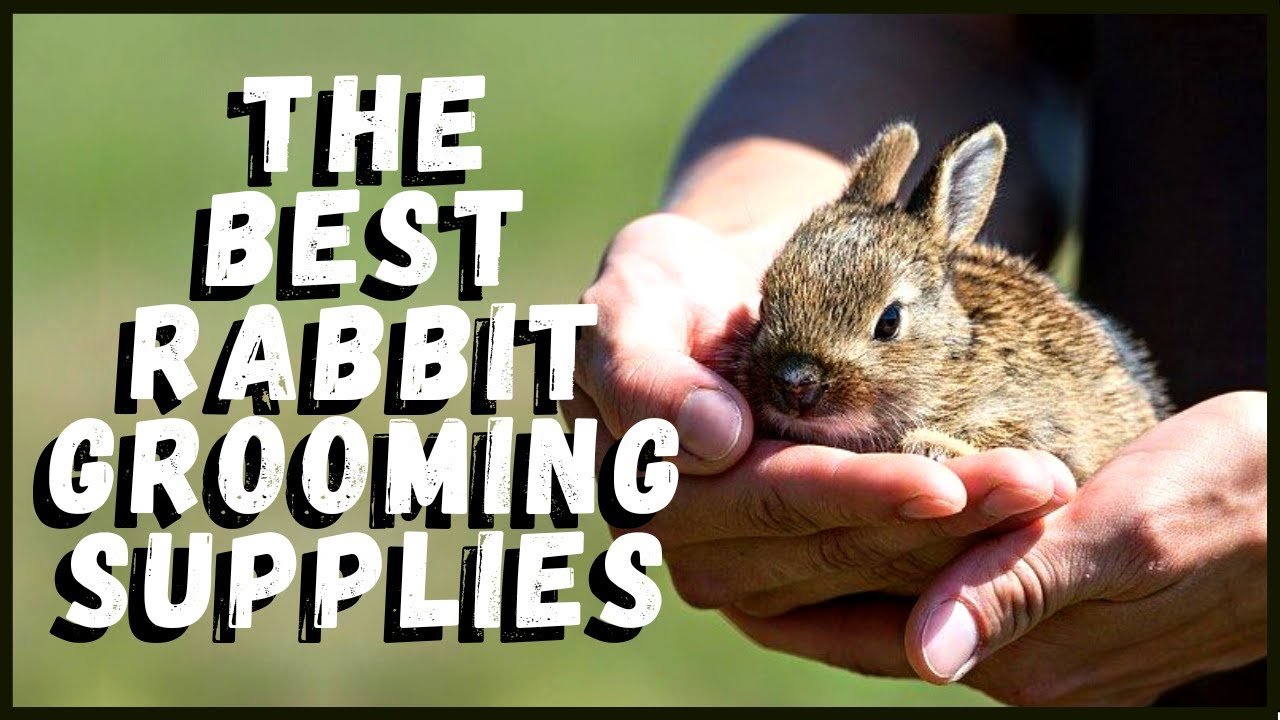How To Identify Shock in Rabbits And Help Them Recover

Shock is a condition that can be caused by many things in rabbits, including trauma, blood loss, infection, and more. It is a serious condition that can lead to death if not treated promptly and properly. Signs of shock in rabbits include weakness, lethargy, pale gums, rapid breathing, and more.
If you think your rabbit is in shock, it is important to seek veterinary care immediately. There are many things that can be done to help a rabbit recover from shock, but it is best to leave this to the professionals.
- Look for signs of shock in your rabbit
- These can include pale or white gums, lethargy, weakness, and rapid breathing
- If you suspect your rabbit is in shock, take them to the vet immediately
- Once at the vet, they will likely give your rabbit fluids and monitor their vital signs
- With treatment, most rabbits will recover from shock within a few hours
- However, some may require hospitalization for further treatment
Rabbit is Limp, But Still Breathing
If you find your rabbit limp and unresponsive, but still breathing, it’s important to take quick action. This is a serious medical emergency and requires immediate vet care.
First, check to see if the rabbit has any obvious injuries.
If there are no visible injuries, gently palpate (feel) the abdomen to see if there is any pain or tenderness present. If you cannot feel anything abnormal, carefully flip the rabbit onto its back and look for signs of chest trauma or abdominal bloating. If you see either of these, do not attempt to give first aid and instead immediately transport the rabbit to the nearest emergency veterinary hospital.
If there are no obvious injuries and the abdomen appears normal, place the rabbit on its right side and give it 5-10 breaths of oxygen via mouth-to-snout resuscitation. If possible, have someone drive you to the vet while you provide oxygen support for your bunny.
How to Tell If a Rabbit is in Shock Or Dead
If your rabbit is unresponsive, has a pale or blue tinge to their skin, and feels cold to the touch, they may be in shock. If you think your rabbit is in shock, it is important to seek veterinary care immediately.
Shock can be caused by many things, including trauma (such as a fall), severe pain, blood loss, and dehydration.
Shock is a medical emergency and can quickly lead to death if not treated promptly.
There are some signs that may indicate that a rabbit is in shock:
– Unresponsiveness
– Pale or blue skin
– Cold to the touch
– Rapid breathing
Rabbit in Shock After Fox Attack
Rabbits are typically timid creatures, but they can also be quite resilient. Unfortunately, one rabbit in England learned this lesson the hard way when he was attacked by a fox.
The rabbit, who has been dubbed “Bunny” by his rescuers, was found lying in a field with severe injuries.
His back legs were both broken and he had multiple puncture wounds from the fox’s teeth.
Thankfully, Bunny was found by a kind-hearted woman who took him to an animal hospital for treatment. The doctors there say that he is lucky to be alive and that his injuries are so severe that he will likely never walk again.
Despite all of this, Bunny is said to be in good spirits and is being well cared for at the hospital. He even has a new friend in the form of a stuffed animal rabbit that the staff gave him to keep him company.
It’s heartwarming to see that even after such a traumatic experience, Bunny still has some fight left in him.
We hope he makes a full recovery and can live out the rest of his days surrounded by love and care.
How Do I Know If My Rabbit is in Shock
If your rabbit is in shock, you will notice that their body temperature has dropped significantly. They may also be very pale, have a weak pulse, and be unresponsive to stimuli. If you think your rabbit is in shock, it is important to seek veterinary care immediately as they will need intensive supportive care.
How to Treat Rabbit in Shock
If your rabbit is in shock, it is important to seek professional medical help immediately. Shock can be caused by many things, including trauma, heatstroke, or an allergic reaction. While waiting for help to arrive, there are some things you can do to help your rabbit.
First, make sure your rabbit is in a quiet and calm environment. If possible, elevate their head and body so that they are level with their heart. This will help improve blood flow and prevent further shock.
Give them small sips of water if they are able to drink, but do not force them to drink if they are not interested. You can also place a cool, damp cloth on their head and ears to help bring their body temperature down.
Do not give your rabbit any food or medication unless directed to do so by a veterinarian.
And most importantly, stay calm yourself! Getting upset will only make the situation worse for your beloved pet.

Credit: pocketpetcentral.com
How Can I Help My Rabbit Recover from Shock?
If your rabbit is in shock, it is important to seek professional help immediately. While you are waiting for the vet, there are a few things you can do to help your rabbit recover.
First, make sure your rabbit is warm.
Shock can cause a drop in body temperature, so wrapping your rabbit in a warm blanket will help them to regulate their temperature. You should also offer them a warm drink, such as chamomile tea.
Second, keep your rabbit calm and quiet.
Do not let them run around or become excited, as this could further increase their heart rate and lead to more stress on their system. Offer them some soft food if they are able to eat, but do not force them if they are not interested.
Finally, monitor your rabbit closely and watch for any changes in their condition.
If they seem to be getting worse, or if you have any concerns at all, please call the vet right away.
How Do You Know If a Bunny is in Shock?
If a bunny is in shock, it will be lethargic and have a low body temperature. The bunny may also have trouble breathing and its heart rate will be slow. If you think your bunny is in shock, take it to the vet immediately.
What Do I Do If My Rabbit is Traumatized?
If your rabbit is traumatized, there are a few things you can do to help. First, try to identify what has caused the trauma. If it was something that happened suddenly, like a loud noise or being dropped, then it may just be a case of shock and they should recover quickly.
However, if the trauma was caused by something more prolonged or severe, like abuse or neglect, then they may need some extra help to get over it.
If your rabbit is showing signs of stress or fearfulness, such as cowering, hiding, shaking or aggressiveness, then you will need to take some steps to help them feel more comfortable and safe. Create a quiet place for them to stay where they feel secure, away from any potential threats.
This might mean setting up a pen in another room with their food and water dishes and some toys or providing them with a hidey-hole in their cage. Make sure they have plenty of hay to eat as this can help calm them down.
Spend time with your rabbit every day, letting them approach you on their own terms when they’re ready.
Offer them treats and pet them gently when they allow it. With time and patience, most rabbits will eventually come out of their shell and learn to trust again.
Identify Shock in Rabbits and Help Them Recover
Can Identifying and Treating Shock Help Lengthen a Rabbit’s Lifespan?
Identifying and treating shock promptly can significantly help your rabbit live longer. Shock is a life-threatening condition that can occur due to various reasons, such as trauma or an illness. Providing immediate medical attention and stabilizing your rabbit’s condition can prevent further complications and potentially lengthen their lifespan. Regular veterinary check-ups and prompt intervention are crucial to ensure your rabbit’s well-being and increase their chances of a longer, healthier life.
Can a Rabbit’s Life Stage Affect its Likelihood of Going into Shock?
Can a rabbit’s life stage affect its likelihood of going into shock? Understanding the connection between life stages and pet rabbit health is crucial. Young rabbits are more susceptible to shock due to their fragile immune systems. Older rabbits may also be at risk, as age-related health issues can weaken their ability to handle stressors. Proper care, a balanced diet, and regular veterinary check-ups are vital to ensuring a rabbit’s well-being at any life stage.
Conclusion
If you think your rabbit is in shock, look for these signs: pale gums, lethargy, and difficulty breathing. If your rabbit is showing any of these signs, take them to the vet immediately.
Shock can be caused by many things, including trauma, heat stroke, or an illness.
Treatment will vary depending on the cause of the shock.
If your rabbit is in shock, the most important thing you can do is keep them calm and warm. Wrap them in a towel or blanket and give them time to recover.
With proper care, most rabbits will make a full recovery from shock.
